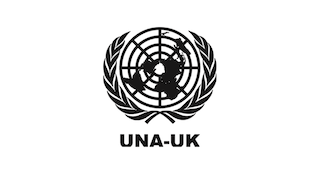UNA-UK’s International Days resource (UNA-ID) was developed by UN experts who worked with primary and secondary school teachers to create age- and curriculum-appropriate materials. UNA-ID was tested and reviewed in classrooms across the country, with curriculum experts providing advice on how best to link the resource to the curricula in the UK's four nations.
The resource reflects UNA-UK's recognition that every school in the UK strives to construct a values-based curriculum that promotes intellectual and emotional development, equality of opportunity, social justice, a healthy and just democracy and a sustainable future for all.
Successful learning, personal development and responsible citizens
In doing so, every school seeks to support successful learners, capable of reaching the very highest standards of intellectual and academic achievement.
At the same time, schools support personal development. This is essential for young people’s emotional and social wellbeing, and for them to function as informed, motivated individuals who are willing to contribute to changing things for the better – locally, nationally and globally.
Through meaningful links with statutory curriculum areas, UNA-ID contributes to the development of successful learners by building knowledge and understanding of content in a range of disciplines. It provides children and young people with the relevant context for subject contents, makes links between different subject areas, and helps them to recognise the value of learning to their present and future lives.
The resource also encourages independent learning in various subject areas, helping to build an enquiring and critical approach, as well as the development of higher-order thinking skills such as evaluation and critiquing.
UNA-ID can also support schools in helping children and young people to become confident individuals and responsible citizens. The resource promotes the development of self-worth, personal identity, informed and inclusive values and beliefs, and principles that distinguish right from wrong. It encourages respect for others, a commitment to human rights and the challenging of injustice as prerequisites of building a sustainable future.
Supporting the four roles of education
Overall, UNA-ID is able to contribute to the four roles of education for children and young people at any stage of learning:
- The development of knowledge and understanding – learning is always ‘about’ something
- The mastering and application of intellectual, emotional and social skills – learning is always about ‘doing’ or applying something in one or other of a wide range of learning environments
- The growth of attitudes, values and judgements – learning is always transformative and ‘feeling’-related
- Through the above, providing the intellectual, emotional and social confidence to participate in society as agents of change – learning is always a prerequisite for ‘acting’ differently, individually or collectively, now or in the future, individually or collectively
Adding value to the curricula in England, Northern Ireland, Scotland and Wales
In compiling this information, UNA-UK has considered the school curriculum in its entirety i.e. the full breadth of all learning and other experiences that each school plans for its students and not only the statutory requirements of national curricula, which is just one element of the school curriculum.
It is incumbent on all publicly-funded schools in the UK to provide a balanced and broadly-based entitlement curriculum for children and young people. The overriding aims, objectives and purposes of this entitlement curriculum are very similar throughout England, Northern Ireland, Scotland and Wales.
This section elaborates on how UNA-ID supports statutory requirements to develop specific knowledge and understanding, skills, attitudes and values through prescribed content. However, it is important to emphasise the degree of flexibility teachers possess in delivering these outcomes.
In all four nations of the UK, it is emphasised that the statutory curriculum represents the minimum entitlement for children and young people. Teachers possess creative scope to ‘package’ the statutory curriculum in a manner which is most suited to their schools; the experiences of their students; the nature of the learning environment in which they teach and the pedagogy they utilise at any given time.
It is in this context that UNA-UK's International Days resource has a valuable contribution to make to curriculum design and delivery.
ENGLAND
In England, for example, the school curriculum must:
- Promote the spiritual, moral, cultural, mental and physical development of learners at the school and within society
- Prepares learners at school for the opportunities, responsibilities and experiences of adult life
How to link UNA-ID to the National Curriculum in England
NORTHERN IRELAND
In Northern Ireland the overriding aim of the school curriculum is to empower young people to develop their potential and to make informed and responsible choices and decisions throughout their lives with specific objectives at both the primary and secondary stage.
How to link UNA-ID to the National Curriculum in Northern Ireland
SCOTLAND
In Scotland the purpose of the curriculum is encapsulated in the development of four capacities, to enable each child or young person to be a successful learner, a confident individual, a responsible citizen and an effective contributor.
How to link UNA-ID to the National Curriculum in Scotland
WALES
At the time of writing, the school curriculum in Wales is undergoing an independent review. Recommendations are due in January 2015, with the final report scheduled for summer 2015.
This review is predicated on the stated commitment to create a coherent and integrated programme that will provide our children and young people with opportunities for learning that will support them in being able to think, do, prosper, and adapt.



